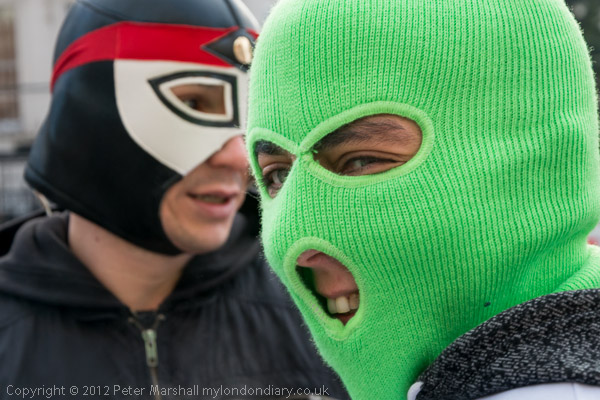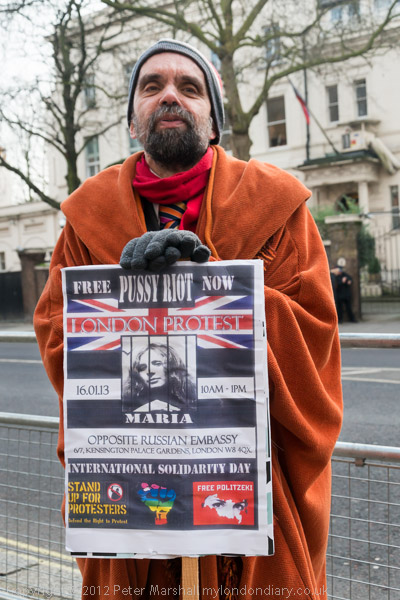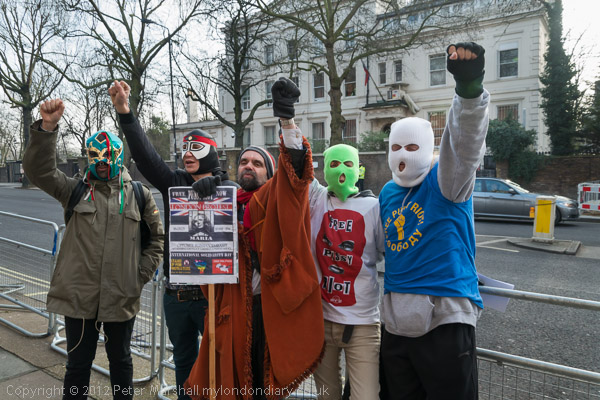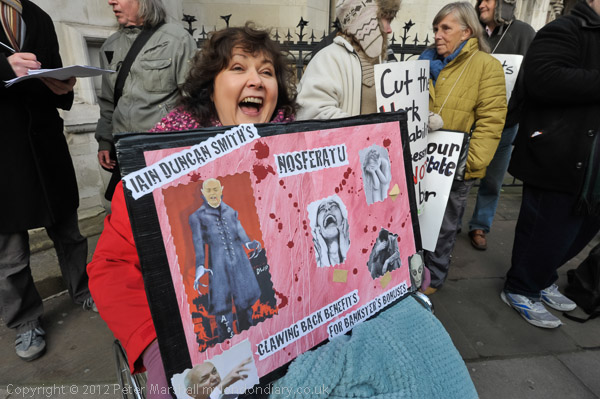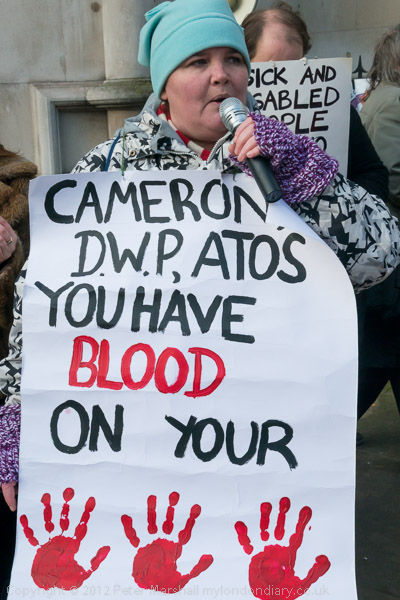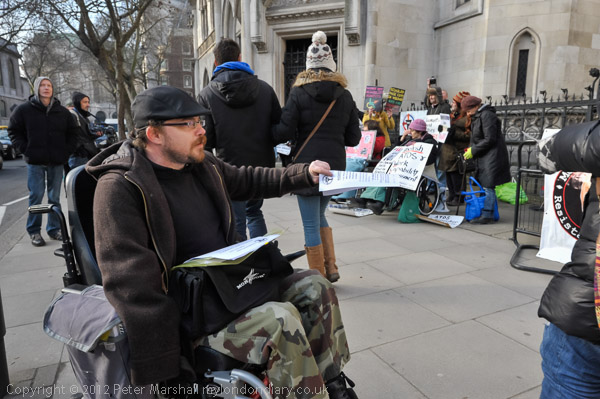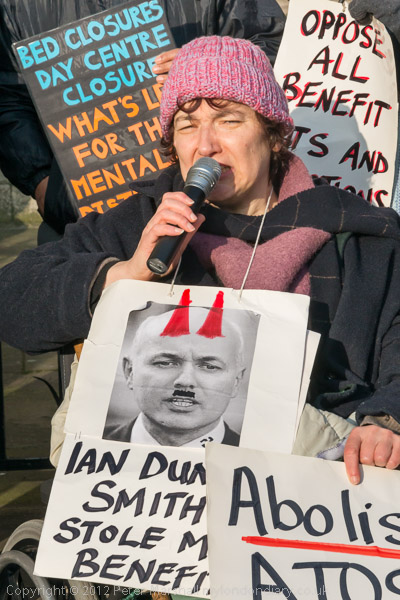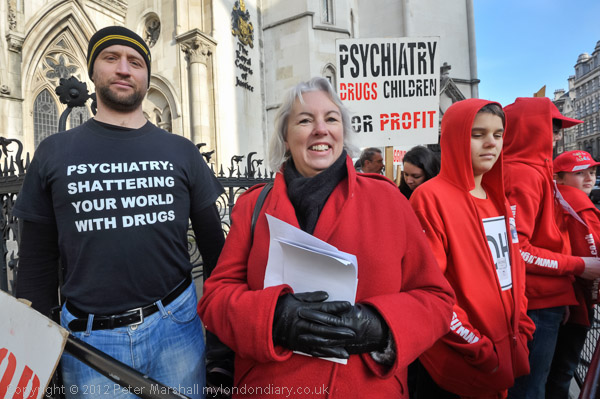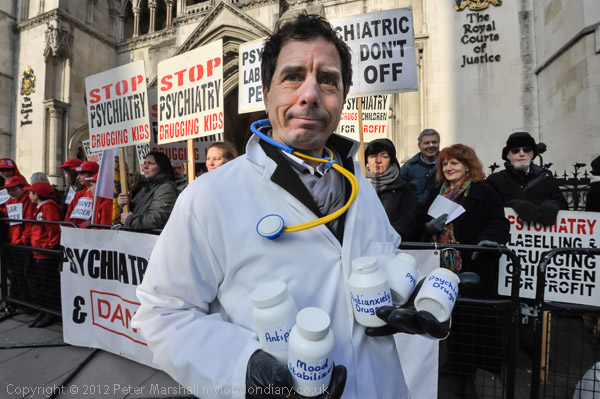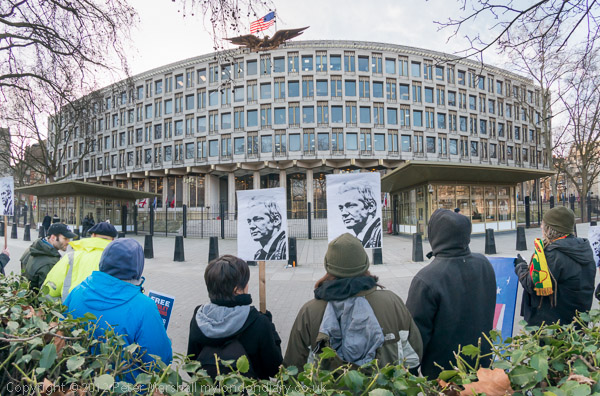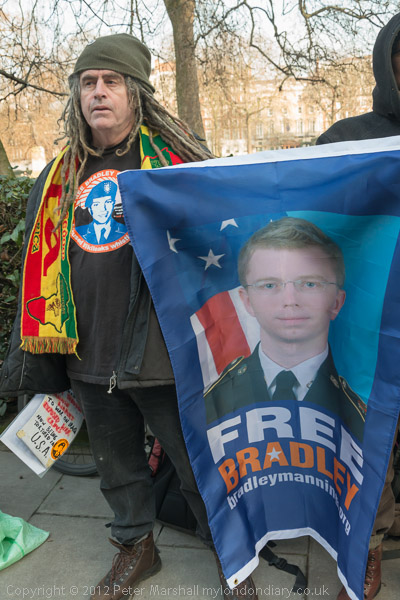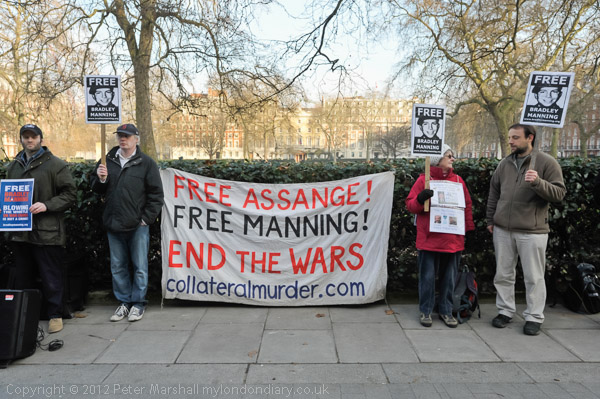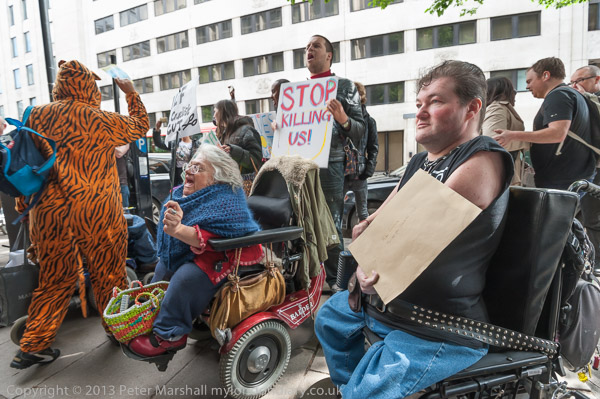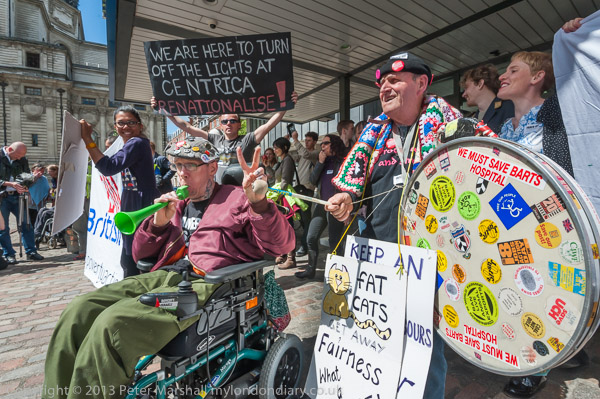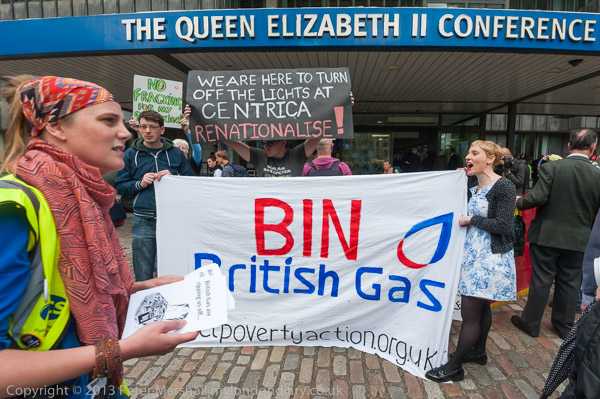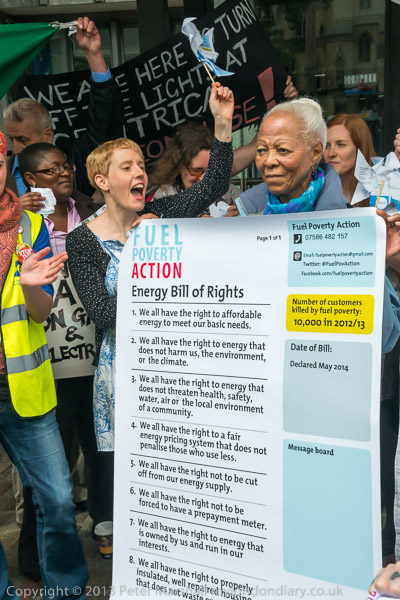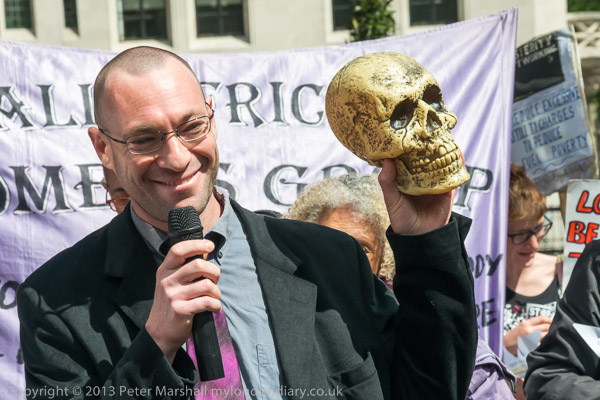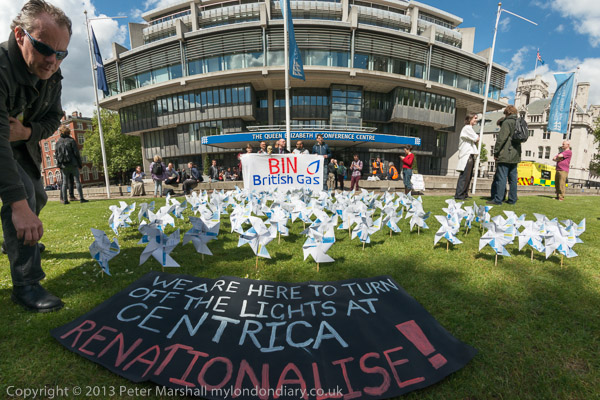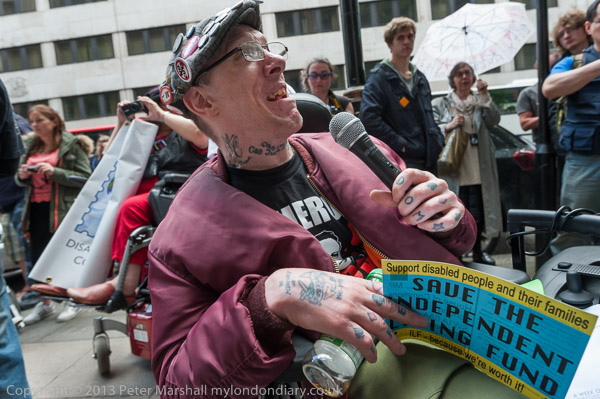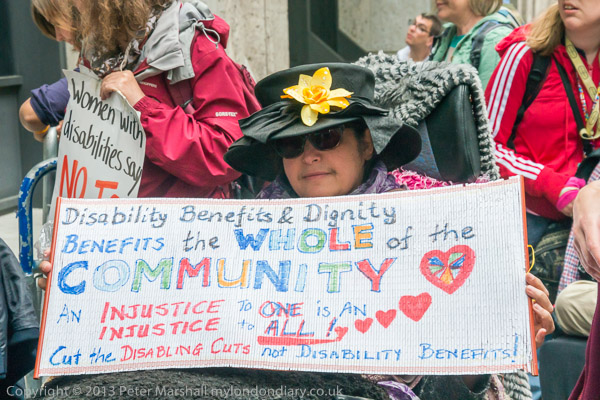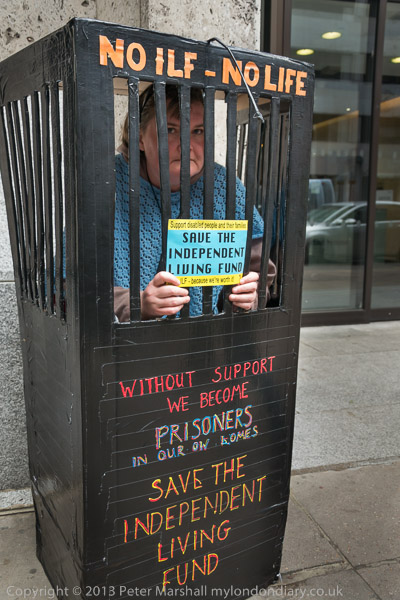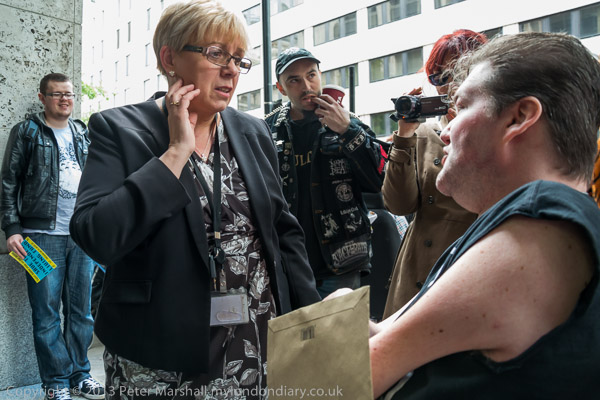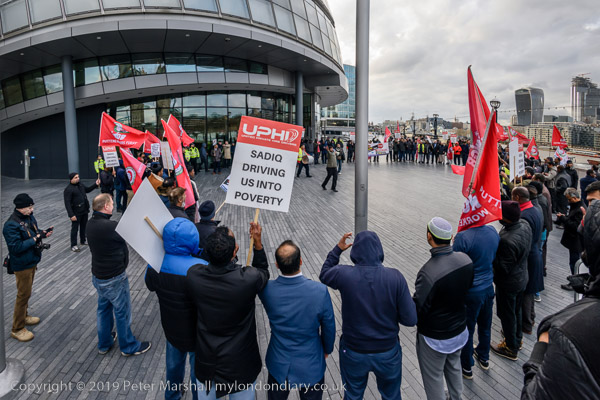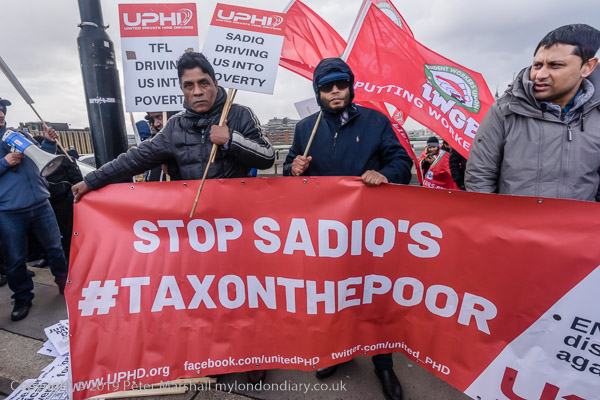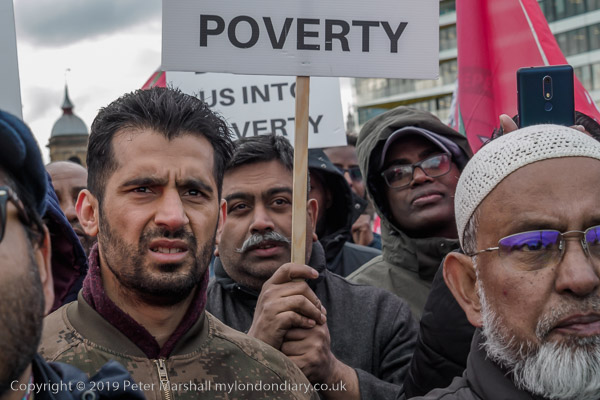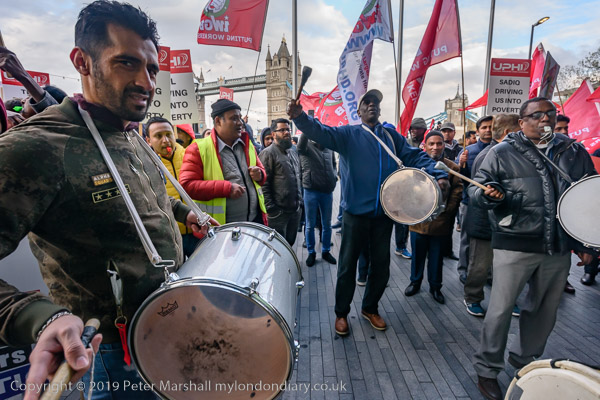Fracking, Congo & Caste: On Saturday 19th October 2013 I began work at a protest calling on the former boss of BP to resign from the House of Lords because of his vested interest in fracking, then photographed a protest against the atrocities being committed in the battles for mineral wealth in the DRC, Uganda and Rwanda before covering a march bringing a petition to Downing Street against the continuing delays in making caste discrimination illegal in the UK.
Global Frackdown: Lord Browne resign! Mayfair
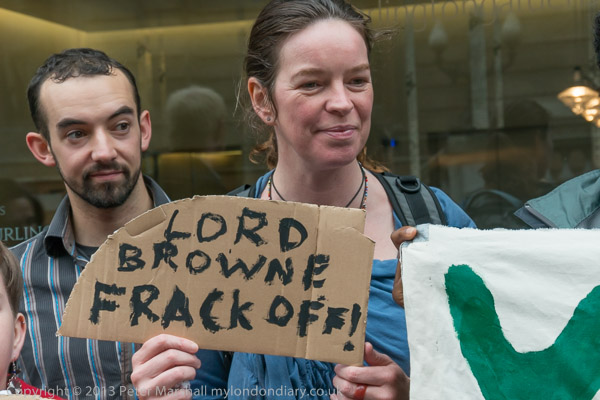
Campaigners went to the offices of private equity firm Riverstone Holdings to call on its managing director Lord Brown of Madingley, a former boss of BP, to resign his seat in the House of Lords because of his vested interests in fracking.
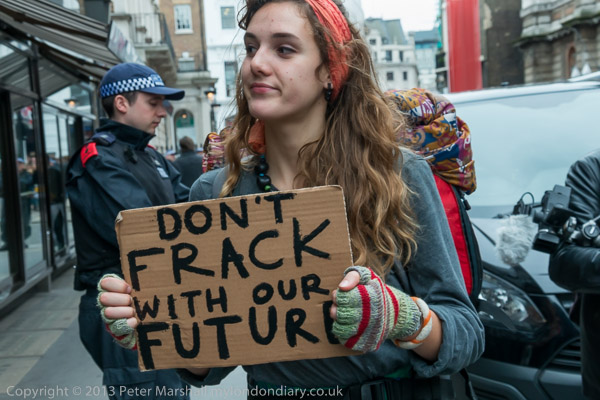
John Browne joined BP in 1966 and worked his way up the company to become CEO in 1995. Knighted in 1998, he joined the House of Lords as Baron Browne of Madingley. in 2001 while still being BP CEO. In 2007 he resigned from BP when accused of perjury in atempting to stop newspapers publishing details of a former homosexual relationship and of alleged misuse of company funds.
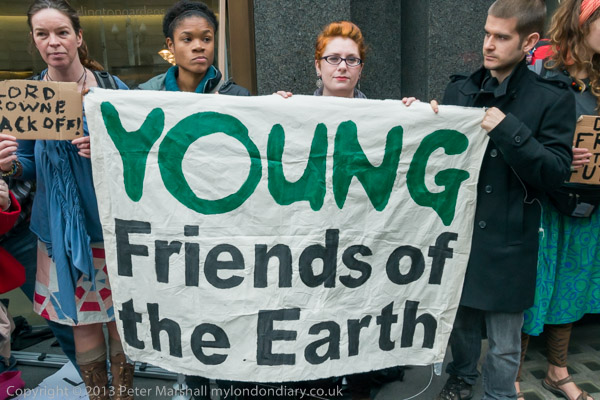
In his time at BP he was responsible for a ruthless programme of cost-cutting that many feel compromised safety and contributed to the 2005 Texas City Refinery explosion and in 2010, the Deepwater Horizon oil spill.
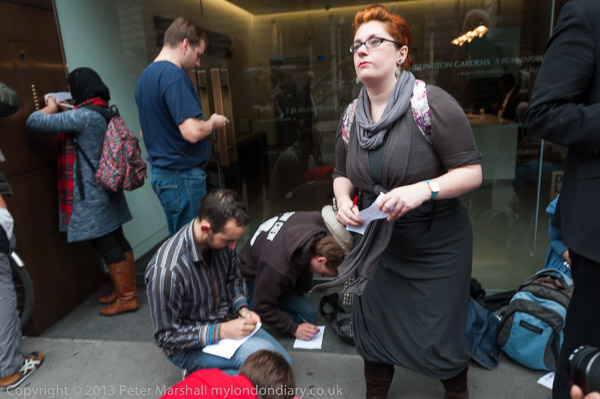
In 2013, Browne was Managing Director and Managing Partner (Europe) of Riverstone Holdings LLC, and more significantly for today’s protest the chairman of Britain’s only shale gas driller Cuadrilla Resources.
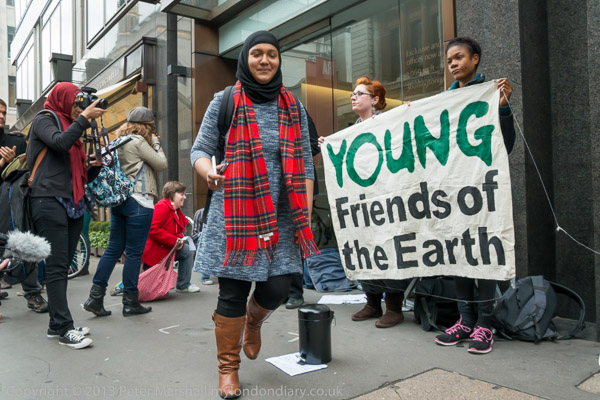
The protest outside Riverstone was a part of a day of a ‘Global Frackdown’ with protests against fracking in 26 countries and in other cities in the UK.
Friends of the Earth activists met on Oxford Street and walked to the office in Burlington Gardens, where after a brief speech about Lord Browne’s involvement in fracking people were invited to write messages and put them in a small brown rubbish bin which would be left at the offices for him.
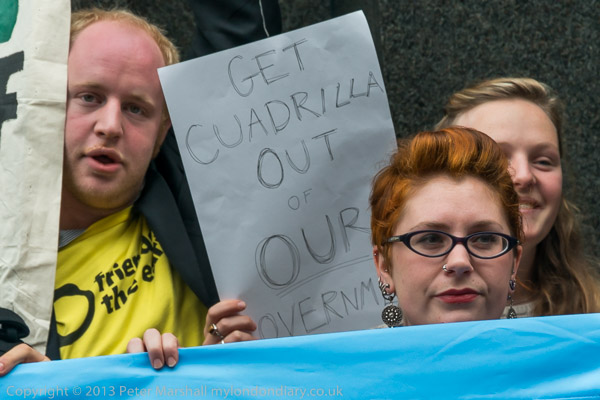
People wrote messages and posed with them calling for an end to fracking at Balombe and elsewhere in the UK as well as showing support for the Elsipogtog First Nation who had a few days earlier been attacked by the Royal Canadian Mounted Police with live ammunition and tear gas while protesting against fracking in New Brunswick, Canada.
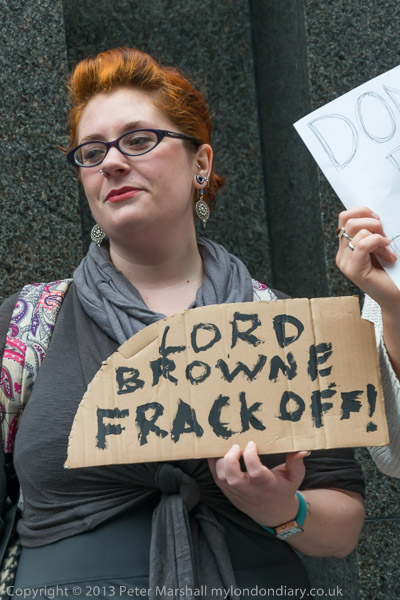
Fortunately police in London merely came to ask the protesters what they intended to do before saying ‘Fine, no problem’ though they did later ask them to ensure there was a free path along the pavement and remind them and photographers of the danger from the slow moving traffic.
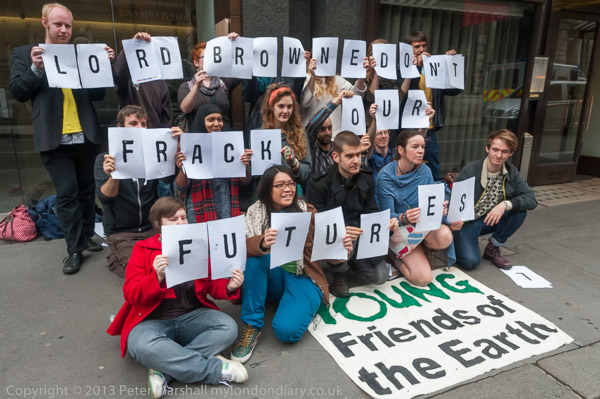
The activists point out that fracking contaminates huge volumes of water with sand and toxic chemicals and also that any fossil fuel production should be avoided as using fossil fuels increases the climate crisis.
Global Frackdown: Lord Browne resign!
Don’t Be Blind to DR Congo Murders – Piccadilly Circus
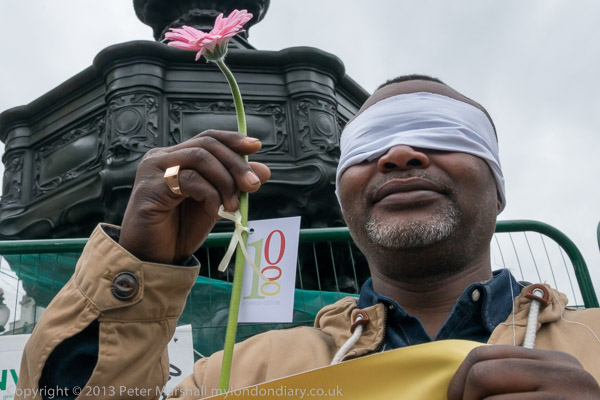
Continuing battles over the mineral wealth of the Democratic Republic of Congo, Uganda and Rwanda have led to the murder of more than 8 million people and over 500,000 men, women and children have been raped by the various armies funded by various European and African multinational companies.
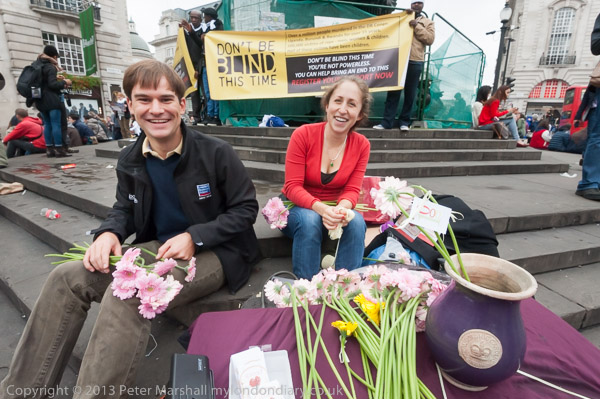
Gold, diamonds, coltan, tungsten, tin and other ores should make these countries rich, but have led to huge devastation. Coltan, containing both niobium and tantalum is vital for the mobile phones, computers, missiles and other modern technology on which we rely. The fight for it has been the main incentive behind the genocidal wars that have waged in the area.
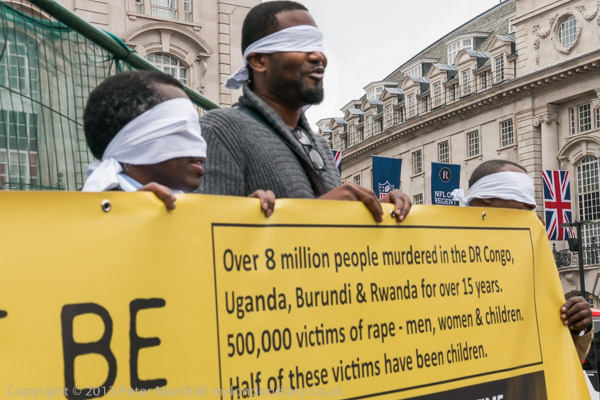
Despite various protests over the years by Congolese in London there has been little publicity to the atrocities and no action by our government. The ‘Don’t be Blind This Time’ campaigners came to Piccadilly Circus to raise public awareness, some posing in blindfolds and others handing out a thousand free flowers, with the message that that we need to demand justice and an end to the impunity and cover up around this conflict.
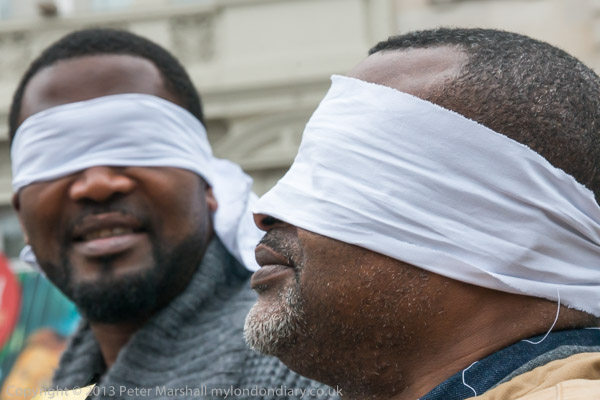
The wars continue in 2024 and have recently intensified. China now also being increasing involved as US companies have since 2013 sold their mines to Chinese companies who now own most of the mines in the DRC.
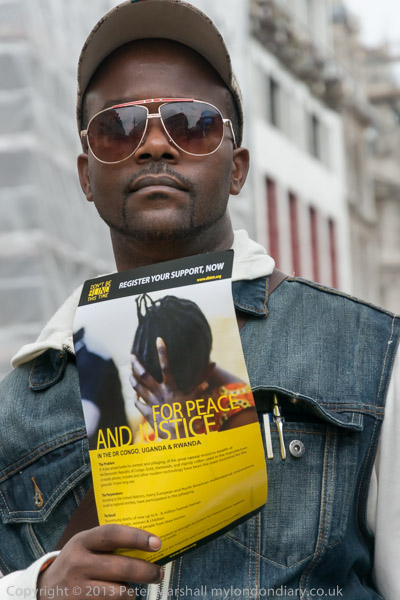
I don’t remember seeing any mention of this protest in the media, and we see few reports of the terrible situation continuing in the area. British editors seldom seem to regard this or conflicts in other areas of Africa such as Sudan as news.
Don’t Be Blind to DR Congo Murders
Make Caste Discrimination Illegal Now – Hyde Park to Whitehall
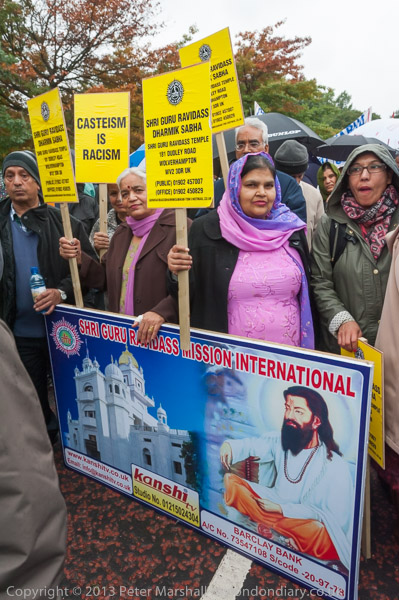
Negative discrimination on the basis of caste, long a traditional part of Indian society, was banned by law there in 1948 and is a part of the 1950 constitution, though it still continues. In the UK The Equality Act 2010 passed under New Labour in 2010 gave our government the power to make caste discrimination illegal but they lost the election before doing so.

The incoming coalition government was reluctant to action, but pressure continued and in 2013 the Enterprise and Regulatory Reform Act 2013 mandated this to be done; instead the government set up a two year consultation, apparently as a result of lobbying by the Alliance of Hindu Organisations, (AHO) a body set up to oppose what they call “the threat posed by this proposed amendment to the Equality Act 2010.”
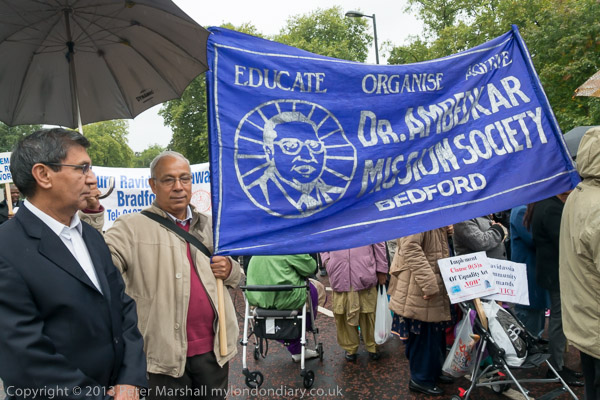
The consultation appears also to be only with established groups dominated by upper caste interests, and its length entirely unnecessary. It isn’t clear why a simple elimination of a clearly discriminatory practice should be regarded as a threat.
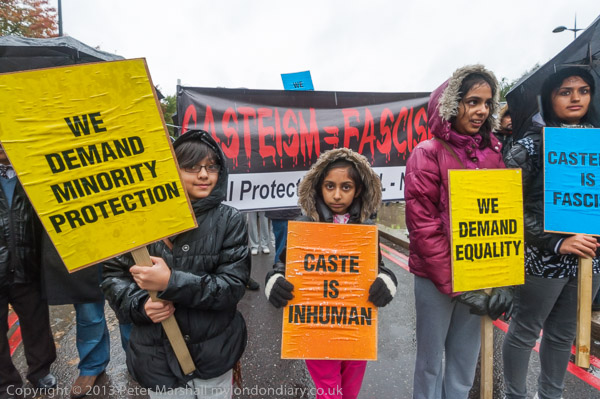
A report on the consultation was finally published in 2018. In it the government rejected the idea of a law against caste discrimination and instead concluded:

Having given careful and detailed consideration to the findings of the consultation, Government believes that the best way to provide the necessary protection against unlawful discrimination because of caste is by relying on emerging case-law as developed by courts and tribunals. In particular, we feel this is the more proportionate approach given the extremely low numbers of cases involved and the clearly controversial nature of introducing “caste”, as a self-standing element, into British domestic law.

They also state that any law would “as divisive as legislating for “class” to become a protected characteristic would be across British society more widely.” I don’t think this comparison has any merit. Not to act seems to me to be accepting a foreign practice, illegal in its country of origin, into British society, and the low number of cases they comment on surely means that case-law will only emerge at a snail’s pace. Our new Labour government should follow the example begun by New Labour in 2010 and make caste discrimination illegal in the UK.
Make Caste Discrimination Illegal Now
Flickr – Facebook – My London Diary – Hull Photos – Lea Valley – Paris
London’s Industrial Heritage – London Photos
All photographs on this page are copyright © Peter Marshall.
Contact me to buy prints or licence to reproduce.
